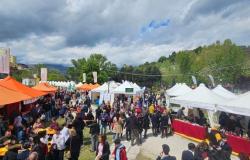MESSINA – One hundred years ago, at the end of the First World War, the most serious health catastrophe of the twentieth century took place. Between the end of 1918 and the beginning of 1919, the “Spanish” flu epidemic raged across the globe, leading to the death of approximately 50 million people. At least 600,000 were victims in Italy. Sicily was the region that, immediately after Lombardy, had the highest number of deaths by far: around 30,000. Long relegated to the background, the theme of the “Spanish” flu, the first of the 20th century pandemics produced by the spread of the H1N1 influenza virus, has returned to the center of historiographical interest, not only in Italy, in relation to the events of Covid-19. A century after the spread of that virus, when humanity found itself facing a new, but not unprecedented, challenge of survival, historians, journalists and writers have questioned the origin, development and end of the ” Spanish”, also evaluating the ways in which that pandemic was managed by the health and political authorities and often making comparisons with that emergency.
A day of study on the theme “Post-war and pandemic. The «Spanish» influence in Sicily: institutions, society, memory. 1918-1919” will be held on Friday 19 April in the premises of the University of Messina, under the patronage of the Accademia Peloritana dei Pericolanti and in collaboration with the Higher School of Historical Studies of the University of the Republic of San Marino. On this occasion, the first results of the research carried out by a working group, coordinated by Claudio Staiti (University of San Marino) and composed of Sicilian historians and others, who set themselves the objective of evaluating how it was managed, perceived and told that tragedy on the island.
The program of the study day
The day will be divided into two sessions. Eugenia’s speeches are scheduled starting from 10 am, in the hall of the Accademia Peloritana dei Pericolanti (Palazzo del Rettorato), with the coordination of Daniela Novarese (University of Messina), and after the greetings of the Vice Rector, Giuseppe Giordano. Tognotti (University of Sassari) on Oblivion and rediscovery of the Spanish flu in the public consciousness at the outbreak of the Covid-19 pandemic, Fabio Montella (Historical Institute of Modena), on Italy and the flu of 1918-1919: reactions, debate and countermeasures, Enza Pelleriti (University of Messina) on The ‘Spanish’ fever in Southern Italy. Ideas for an investigation, Luca Gorgolini (University of San Marino) on the First World War, armies and pandemic, and Giancarlo Poidomani (University of Catania) on War and post-war in Sicily (1915-1919). In the afternoon, starting from 3.30 pm, in room 12 of the Department of Ancient and Modern Civilizations (Polo Annunziata), with the coordination of Giovanna D’Amico (University of Messina), there will be talks by Manoela Patti (University of Palermo ) on The “germ of evil”. Sicilian institutions and societies faced with the ‘Spanish’ influence, Alessia Facineroso (University of Catania) on From the chair to the front. Scientific research and military management, Fabio Milazzo (Historical Institute of the Resistance and Contemporary Society of Cuneo) on Medicine, public health and medical debate, Antonio Baglio (University of Messina) on News and representation of the Spanish language in the island’s newspapers, and Claudio Staiti (University of San Marino) on «the agent died in piles». Spanish in the ‘intimate’ writings of Sicilians.
The research was carried out using regional and national archives and examined the use of official sources (medical bulletins, provincial reports…), government correspondence (e.g. the Prefects’ reports), newspapers (articles, but also advertisements and obituaries), literary works and intimate writings (letters, diaries, memoirs). The desire was to provide a broad interpretative framework of the impact of the pandemic on the island territory and on the Sicilians, trying to evaluate, from a perspective that takes into account the current lively national and international historiographical debate, and in dialogue with similar projects of research that are being carried out elsewhere, the social, clinical and political consequences of this forgotten tragedy.
Tags: Spanish flu epidemic years study day University Messina





